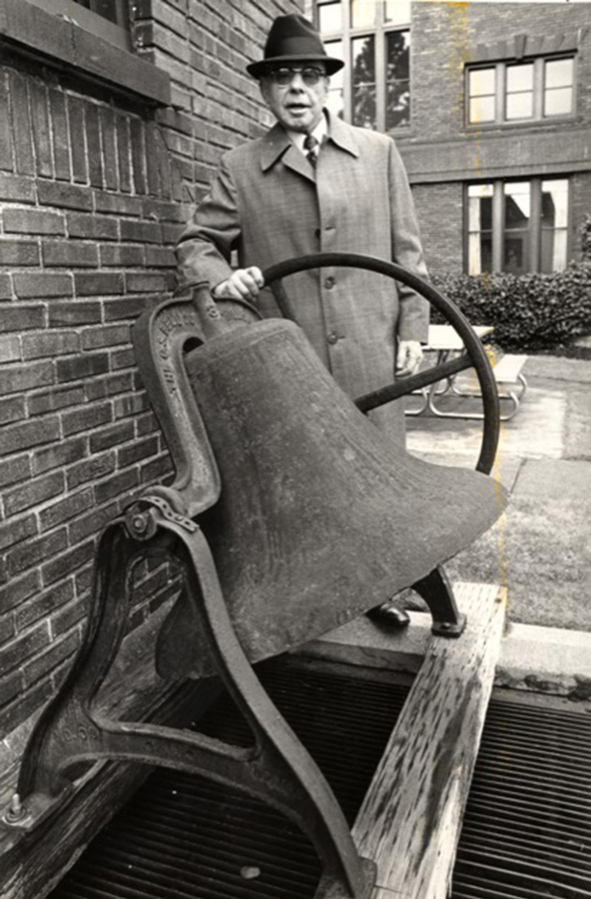When the train from Seattle pulled into the Vancouver station early on a January morning in 1917, a blind teenager stepped onto the platform. A taxi driver bellowed to ask him if he was headed to the blind school. After a 35-cent ride, the driver let him out near the only lighted doorway on the school’s campus. It turned out to be the kitchen. The boy watched the cook prepare breakfast for the students until the breakfast bell rang. As students filed in for breakfast, the new boy sitting among them forked up pancakes doused with bacon gravy and no longer felt alone.
As a youth, Emil Fries (1901-1997) worked on his family’s farm in the Okanagan country despite his limited vision. Even seated at the front of his school classroom, he couldn’t see the writing on the blackboard. Worse, his country classmates teased him about it.
So his parents hatched a plan to get him into the Washington State School for the Blind in Vancouver. The school taught boys canning, broom making and piano tuning. Girls acquired domestic skills.
In 1917, when the Interstate Bridge opened, Fries and the other students stood in the crowd at the dedication. A year later, he found himself in isolation during the influenza epidemic. Piano tuning attracted Fries (pronounced “freeze”), but his lack of musical training made the tedious process challenging.



